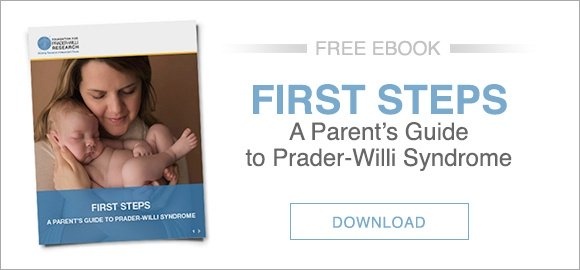Considering the complex neurological basis of PWS, one major hurdle in conducting PWS research is obtaining neurons, i.e. studying neurons without taking brain samples. Pluripotent stem cells are a phenomenal resource as they can be coaxed into becoming different cell types in the lab dish for study (neurons, muscle cells, etc). Essentially, stem cells allow scientists to study brain cells from individuals with PWS without the need for brain tissue.
Stem cells can be generated from a number of sources including from skin biopsies or blood cells. Dental pulp from the inside of teeth that have fallen out also have stem cells and are a great, painless way for researchers to get stem cells. New research at the University of Tennessee Health Science Center shows that nerve cells can be grown from Dental Pulp Stem Cells (DPSCs). Dr. Reiter’s group is using the dental pulp-derived neurons to study the different genetic variations of chromosome 15q. His lab has a number of samples from individuals with Angelman Syndrome (AS) and duplications of 15q (Dup15q), but currently none from PWS. He is very excited to add PWS to his study and we can help by providing him with teeth from kids with PWS by all genetic mechanisms - deletion (large and small), UPD and imprinting mutations.
PWS (deletion of paternal 15q or UPD of maternal 15), Angelman syndrome (deletion on maternal 15q), and various duplications of 15q that occur in the population, are all associated with a broad range of intellectual disability, autism, seizures, etc. Comparisons of neurons among these groups are showing that the regulation of this region of 15q is complex, and expression of the genes doesn't always behave as you would think (e.g., having three copies of certain genes on 15q does not necessarily mean you get more expression, sometimes you actually get less...). To better understand how genes are regulated in the 15q region, and to be able to compare PWS to AS and Dup15q, we're asking for your help in getting new samples to Dr. Reiter. Your child’s baby teeth may be the key to understanding the genetic and cellular changes that accompany 15q alterations!
Please note in the instructions below that teeth must be placed in the supplied media and shipped to Dr. Reiter's lab within 48 hours of falling out, so if you want to participate…plan ahead and get the kit ahead of time in anticipation of that loose tooth coming out, or of an oral surgery involving tooth extraction.
Study details:
Extraction of Neuronal Stem Cells from Dental Pulp for Human Neurogenetic Disease Studies
Dr. Lawrence T. Reiter at the University of Tennessee Health Science Center in Memphis, TN is conducting a research study to determine if neurons can be grown from the dental pulp of individuals with various neurogenetic syndromes including chromosomal duplications and deletions of human chromosome 15q, including PWS. Participants will be required to submit a genetics report confirming the PWS diagnosis and type of genetic lesion. Dr. Reiter will provide a kit with a tube of cell growth solution and a return package to you at no cost. Should you agree to participate you will only need to provide a fresh tooth specimen, either extracted (e.g. surgery) or one that fell out on its own. Teeth must arrive at Dr. Reiter's laboratory no more than 48hrs after the time they came out of the mouth and in the special media provided.
For more information on how to participate, please contact Dr. Reiter directly via telephone: (901) 448-2635 or by e-mail: lreiter@uthsc.edu








